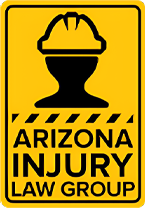|
|
Last Modified on May 03, 2023
In general, Worker’s Compensation benefits and settlements will not be taxed at either the state or federal level in Arizona. If the worker is also receiving Social Security Disability Insurance (SSDI) or Supplemental Security Income (SSI) benefits, however, the total amounts from both sources cannot be over 80 percent of the salary you were receiving at the time of injury. If it is over that amount, the Social Security Administration may reduce your SSDI benefits, so that the joint total of both sources now falls under the required 80-percent limit.
The Taxable Reduction
This reduction by the SSDI, also known as the worker’s compensation offset, is considered the amount of the worker’s compensation that is taxed. If you are in this situation, your worker’s compensation attorney can structure the offset in such a way as to not be taxed, or to lower the offset to a minimal amount available for taxation. Any income that comes in from returning to work, albeit in a reduced working position, is also taxed.
The Worker’s Compensation Settlement
If you have received an injury on the job and the claim has been accepted, you will need not only the monthly benefits to live on but also payments for your medical bills while recovering from your injuries. In some cases, medical treatment will be ongoing for the rest of your life.
If the insurer disagrees with your eligibility for a claim, you can move towards settling your claim only after you have received a maximum medical improvement (MMI) status from your doctor. This status refers to where you have received all the medical care available to you, and your recovery will not change from this point forward because you are as medically stabilized as you will get.
You should consult carefully with a worker’s compensation attorney about whether it is a good idea to settle the claim. For example, you may need medical care for the rest of your life, and a settlement may prevent continued medical coverage unless you can include that ongoing coverage in the settlement.
There is also a list of deductions from the settlement that you should know about first, such as how much for attorney fees, unpaid child support attachments, currently unpaid doctors’ bills, and knowing about the Medicare Set-Aside (MSA) fund, before you move ahead with any settlement. You may also develop off-shoot injuries from the accident which will not be covered.
All Worker’s Compensation settlements of this nature are not taxed, except in the situation where you may be receiving SSDI as well, in which case your attorney can do an offset for you.
When to Go for a Settlement
Your claim is denied, yet you and your attorney see a reasonable chance to either overturn the insurer’s claim denial or at least apply for a settlement. Your attorney can recommend the best options available for your circumstances.
Call us at once if you need help with your worker’s compensation claim. 602-346-9195





